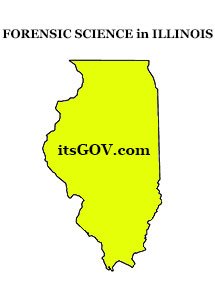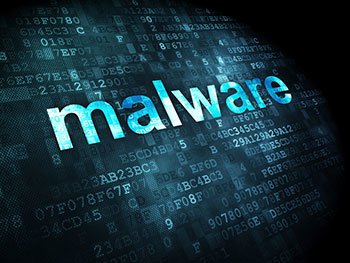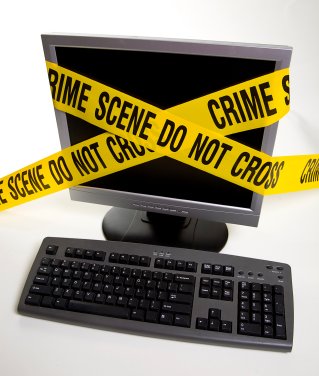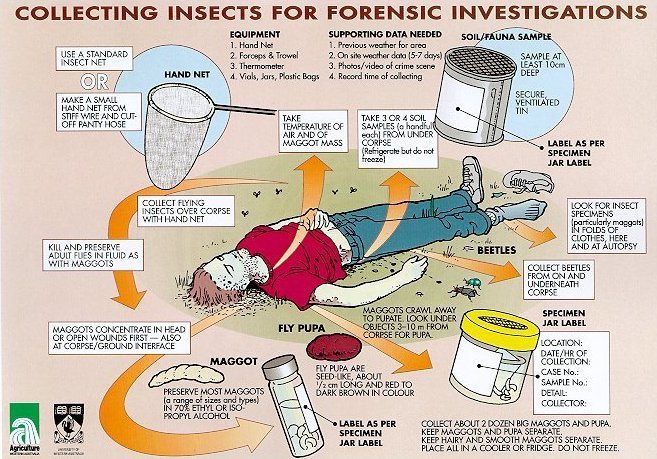
Forensic science combines science and investigation in order to aid and support the prosecution or defense in criminal and civil investigations. While the profession has been widely romanticized by various TV shows, make no mistake – this job is most likely different that you expect. In contrast with popular perception, this is a highly scientific role, which often involves detailed, painstaking work. Field duties are limited to a few areas of expertise, and most often than not a forensic scientist will spend his time in the lab.
If you made it this far, though, congratulations! You’re taking the first steps in joining a very rewarding profession and itsGOV is here to guide you through what you need to know and what you need to do to join a forensic science program in Illinois.
Forensic Science Requirements
Depending on the type of forensic science practiced, different degrees and educational backgrounds may help a candidate get a job and excel in this field. Regarding formal education, requirements vary across jobs, but you should definitely have a solid background in mathematics, biology and chemistry.
The National Institute of Justice, a division of the U.S. Department of Justice, offers guidelines for model undergraduate and graduate forensic science degree programs. According to the American Academy of Forensic Science, strong programs should offer a curriculum that concentrates on scientific writing, laboratory skills, public speaking, and computer software application training.
To pursue a graduate-level forensic science degrees, one must first earn a bachelor’s degree in natural science or forensic science. Doctoral students seeking to work in forensic science as researchers are expected to have a solid background in how crime scenes are studied, concepts of physical evidence, how law and science work in the courtroom.
Forensic Science Training in Illinois
The forensic science programs below will help you train to become an expert in one of the following:
- Computer Forensics
- Forensic Accounting
- Forensic Chemistry
- Forensic Psychology
- Forensic Science and Technology
Forensic Science Salary in Illinois
Your salary as a forensic scientists will depend on how long you’ve been out of school, experience, whether you’re employed by the state or in a private lab and, of course, the kind of forensics you master (anthropology, pathology, accounting and so on). As of 2008, 580 forensic science professionals were working in Illinois. On average, a forensic scientist can expect to earn $72,990 annually or slightly more than in other states.
Forensic Science Schools and Colleges in Illinois
Bachelor Programs in Illinois
| University | Lewis University, Illinois, Chemistry Concentration in Forensic Chemistry (BS) |
| Duration | 4 years |
| Type | Full time, Part time |
| Tuition and fees | $26,780 per year |
| Program link |
Lewis University, Illinois, Chemistry Concentration in Forensic Chemistry (BS) Program Information
This program follows the recommendations of the American Chemical Society and is intended for students who plan to go to graduate school or enter industry.
A grade “C-” or better must earn in a prerequisite course in order to advance to the next course in the sequence. A chemistry course may be taken only twice at Lewis University. If a students has not achieved a minimum of ‘C-‘ after the second attempt, the student may not repeat the class at Lewis. Chemistry majors may not double major in Chemical Physics or Biochemistry or minor in Biochemistry. The core modules are:
– General Chemistry
– Fundamental Spectroscopy
– Trace Analysis
– Advanced Toxicology
– Advanced Forensic Chemistry
– Advanced Instrumental Analysis
Other useful information: Lewis University is a comprehensive Catholic university located southwest of Chicago, where the traditions of liberal learning, values, and preparation for professional work come together with a synergy that gives the University its educational identity and focus. Founded in 1932, Lewis is a dynamic, coeducational university offering more than 80 undergraduate majors and programs of study, 25 graduate programs, and certificates of advanced study. Lewis is one of many institutions sponsored by the De La Salle Christian Brothers, an international Roman Catholic teaching order.
| University | Loyola University, Chicago, Illinois, Forensic Science B.S. |
| Duration | 4 years |
| Type | Full time, Part time |
| Tuition and fees | $18,365 per year |
| Program link |
Loyola University, Chicago, Illinois, Forensic Science B.S. Program Information
Loyola’s strong reputation in the sciences, along with its successful track record in preparing students for the health professions, enables forensic science graduates to begin highly successful careers in this dynamic field.
The Program is fully accredited by The Forensic Education Programs Accreditation Commission (FEPAC), one of less than twenty B.S. Programs in the U.S. This major combines coursework from anthropology, biology, chemistry, criminal justice, mathematics and physics. The core modules are:
– Anthropology: Human Osteology
– Genetics
– Forensic Chemistry
– Forensic Molecular Biology
– General Chemistry
– Quantitative Analysis with Lab
– Criminal Justice
– Introduction to Forensic Science
– Introduction to Pattern Evidence and Lab
– Introduction to Forensic Toxicology
– Introduction to Drug Chemistry and Lab
Other useful information: Forensic science combines natural science and criminal justice. Successful practitioners must have substantial technical expertise and knowledge, critical analytic and thinking abilities, superior communications skills and an awareness of the scientist’s ethical responsibilities in the legal process.
Applying knowledge and technology from anthropology, biology and chemistry, forensic scientists interact with the criminal justice system to collect, examine and evaluate criminal evidence. This evidence may include hair, blood and other bodily fluids; tool and tire marks; residue from gunshots; and textile fibers from clothing and other materials.
Students pursuing the B.S. in Forensic Science at Loyola University Chicago benefit from expert faculty and state-of-the-art facilities, preparing them for careers in a variety of occupational settings.
| University | Shawnee Community College, Chicago, Illinois |
| Duration | 4 years |
| Type | Full time, Part time |
| Tuition and fees | $3,800 in-state, $6360 out-of-state per year |
| Program link |
Shawnee Community College, Chicago, Illinois Program Information
Criminal Forensic ScienceThis program is to fulfill the emerging need for training and general curiosity in the area of evidence processing and crime scene investigation. Today’s law enforcement officer has many new tools available in his/her arsenal to fight crime. This program will introduce you to those tools and the reality of forensic science and its application in criminal justice.
This program is exclusive to Southern Illinois and is utilizing a professional faculty with many years of experience in forensic science and crime scene processing. Instructors will discuss and demonstrate subjects related to DNA, fingerprints, hair, documents, firearms, footwear and many other types of physical evidence and how they are presented in court.
Those who will benefit from these classes are current or future police officers, attorneys, civilians, and anyone who find the field of forensic science and crime scene investigation fascinating.
The program will not make students an expert or a crime scene investigator, but it will benefit anyone seeking or continuing in a criminal justice career. Those students who are seeking careers in a crime laboratory will have a better understanding of crime scene processing, complimenting their eventual advanced degree needed in that field. The core modules are:
– Basic Fingerprints
– Court Testimony
– Forensic DNA
– Forensic Trace Microscopy
– Security and Safety
– Criminal Law
– Ethics in Criminal Justice
– Parole and Probation
– Introduction to Crime Control
– Criminal Behavior
Other useful information: Shawnee Community College promotes student learning through the values of the community college concept, recognizing the uniqueness of each individual and the diversity of his/her needs. The college is dedicated to utilizing the resources of the institution to provide a comprehensive program to meet those diverse needs and improve the quality of life for each individual. Education is the key to preparing individuals to confront the economic, social, and multicultural issues of this century. The college takes pride in providing quality educational and training programs that incorporate the most recent technologies to meet the ever-changing needs of our students and district residents.
| University | Lewis University, Criminal Investigation and Justice, B.A., Illinois |
| Duration | 4 years |
| Type | Full time, Part time |
| Tuition and fees | $32,800 per year |
| Program link |
Lewis University, Forensic Criminal Investigation, Illinois Program Information
While shows like CSI have partially glamorized and dramatized the role of the Forensic Criminal Investigator, that doesn’t mean it’s not one of the most exciting careers out there. Unlike programs structured to train students to become laboratory forensic scientists, this challenging degree program prepares students to work as a law enforcement officer and function as an in-field crime scene investigator who collects, secures and preserves the physical evidence at crime scenes so critical to ensuring justice is served.
Note: For those students who are interested in studying forensic science as preparation for a career as a laboratory professional, Lewis’ Chemistry program with a concentration in forensic science may be a better option. The core modules are:
– Introduction to Criminal Justice
– Court systems and Probation
– Criminology
– Introduction to Corrections
– Juvenile Justice Systems
– Drugs: Incidence and Abuse
– State and Local Government
– Public Administration
– Sociology of Delinquent Behavior
– Criminal Procedures / Rules of Evidence
– Rights, Civil Liability and Administrative Actions
Other useful information: Majors in this program may wish to take a minor in Communication Studies for Justice, Law, and Public Safety Studies Majors and/or a minor in Business Studies for Criminal/Social Justice Majors and/or a minor in Cyber Security Science. For those students who are interested in studying forensic science as preparation for a career as a laboratory professional, Lewis’ Chemistry program with a concentration in forensic science may be a better option. The seventh largest private, not-for-profit university in Illinois, Lewis offers more than 100 undergraduate and graduate programs, NCAA Division II athletics, a wide range of campus activities, a wonderfully-diverse community and many service-learning opportunities. Student-centered, Lewis combines a liberal arts focused education with practical and relevant professional education to contribute to students’ success throughout their careers and in their lifetime. Our students graduate ready for their careers and for advanced study as well.
| University | Lewis University, Forensic Criminal Justice, B.A., Illinois |
| Duration | 4 years |
| Type | Full time, Part time |
| Tuition and fees | $32,800 per year |
| Program link |
Lewis University, Forensic Criminal Justice, B.A., Illinois Program Information
The Justice, Law and Public Safety Studies Department (JLPSS) offers a Bachelor’s to Master’s Fast Track option for Lewis University undergraduate Forensic Criminal Investigation majors. The Fast Track option allows qualified undergraduates to complete the graduate MSCSJ (Master of Science in Criminal/Social Justice) in less than time than would be possible if the two programs would be taken separately. Nine graduate hours may be used to complete the Bachelor’s degree (128 hours) and to satisfy specific course requirements for the Master’s program. The total number of required graduate credits (36) will remain the same. Students apply for admission to the Fast Track option by submitting both the department application form and Block Tuition Exemption form to the Department Chair of JLPSS when they reach senior status (complete 90 credit hours) and have achieved an overall GPA 3.0. Qualified students approved for the Fast Track option may apply for financial aid to graduate courses and are exempt from the 18-hour block in the semesters when they take these select graduate courses. The core modules are:
– Anatomy and Physiology I, II
– Basic Inorganic Chemistry
– Introductory Organic and Biochemistry
– Applied Forenisc Techniques
– Introduction to Criminal Justice
– Court System and Probation
– Criminology
– Criminal Investigation
– Criminalistics – Introduction to Forensic Investigation
– Elements of Criminal Law
– Criminal Procedure/ Rules of Evidence
Other useful information: Sponsored by the De La Salle Christian Brothers, Lewis is a Catholic university in the Lasallian tradition, preparing our students to become intellectually engaged, ethically grounded, socially responsible and globally connected. The University is one of nearly 70 in the worldwide Lasallian network. Small, personalized classes provide faculty with abundant opportunities to interact with our students and effectively involve them in various learning projects and relevant research. Moreover, the University works in partnership with area employers and communities to provide our students with hands-on learning and leadership opportunities. We also work carefully with them to encourage their graduating within four years and to ensure that they are not burdened with unreasonable debt after graduation.
Masters Programs in Illinois
| University | Alder School of Professional Psychology, Chicago, Illinois |
| Duration | 12 months |
| Type | Full time, Part time |
| Tuition and fees | $1,100 per credit hour |
| Program link |
Program information: The master is called Arts of Counseling and the specialization it offers is in Forensic Psychology with a degree program which prepares the students for a high standard specialized future career integrating knowledge of human behavior with active participation in the criminal justice system. Specialized course work exposes students to the predominant theories and techniques of forensic evaluation, including the determination of a defendant’s competency to stand trial, determination of sanity at the time of an offense, and determination of qualification for the death penalty in the event of a conviction for a capital crime.
The university offers its students the possibility to practice the theoretical knowledge in organized environments in order for them to better assimilate and consolidate the approach that is presented on the core modules of the program, which are:
– The Criminal Mind
– Juvenile Delinquency
– Forensic Assessment
– Family Violence
– Profiling the Homicidal Offender
– Internship
– Forensic Seminar
Other useful information: Students also develop comprehensive understanding of the techniques associated with the forensic practitioner’s involvement in criminal investigations, including activities such as forensic hypnosis, offender and geographic profiling, and the ongoing review of police interview and witness identification procedures. Students are introduced to such specialized topics as the psychological effects of incarceration, jury selection, the evaluation of sexually dangerous persons, and the psychosocial development of the criminal personality type.
| University | University of Illinois at Chicago, College of Pharmacy, Forensic Science Program |
| Duration | 24 months |
| Type | Full time, Part time |
| Tuition and fees | $8,820 in-state; $20,520 out-of-state per year |
| Program link |
University of Illinois at Chicago, College of Pharmacy, Forensic Science Program, Program Information
The M.S. program in forensic science is administered by the Department of Biopharmaceutical Sciences in the College of Pharmacy. The program encompasses a broad knowledge of the basic areas of forensic science laboratory disciplines (biology/biochemistry; chemistry and trace evidence analysis; drug identification and toxicology; and pattern evidence) with emphasis on the integration of analytical and interpretative skills. The role of forensic laboratory sciences in justice system processes is an integrating theme. There is an opportunity for some specialization through the strategic selection of electives, and choice of research area. The core modules are:
– Foundations of Forensic Science
– Forensic Analysis of Biological Evidence
– Forensic Chemistry and Trace Evidence Analysis
– Physical Pattern Evidence Analysis
– Forensic Drug Chemistry and toxicology
– Forensic Science Seminar
– Expert Witness Testimony and Courtroom Demeanor
– One of the following: Research Forensic Science, Thesis Research
Other useful information: Among the concentrations (that are optional), the students who intend to try to specialize in forensic biology / DNA must have one course in each of molecular biology, genetics, and biochemistry to meet national guidelines.The courses can be undergraduate or graduate, but must be for credit. Students who want to specialize in this area should use their graduate electives to take any of these courses that they are missing from undergraduate school.
| University | University of Illinois at Chicago, College of Pharmacy |
| Duration | 24 months |
| Type | Full time, Part time |
| Tuition and fees | $8,082 per year |
| Program link | Program link |
University of Illinois at Chicago, College of Pharmacy, Forensic Toxicology Program Information
The university offers a unique opportunity for accomplished students with strong undergraduate training in chemistry and the basic sciences to earn a Master of Science degree in forensic toxicology. The program is located in the College of Pharmacy, an environment of well-developed scientific infrastructure, research orientation, and significant expertise in toxicology and drug chemistry. Within the College, there are four Ph.D. programs in addition to the M.S. program in forensic toxicology and M.S. in forensic sciences.
The practitioners here are also positioned to take maximal advantage of the proximity of the other health care related and professional colleges. UIC’s program has established and enjoys cooperative relationships with the Illinois State Police Forensic Science Command (especially the Forensic Science Center at Chicago). The Illinois State Police Forensic Science Center at Chicago (and the Cook County medical examiner’s facility) are located within a few blocks of the UIC West campus. Along with ISP, and other agencies such as DEA and IRS who maintain laboratories in Chicago, we work together to make this Chicago consortium a major, national education, research and training center in forensic toxicology and forensic science in general. The UIC Forensic Science Group additionally operates an animal forensic toxicology laboratory located close to the UIC West campus. This laboratory conducts post-race drug testing on the winning race horses from all tracks in Illinois according to rules and guidelines established by the Illinois Racing Board. The core modules are:
– Foundations of Forensic Toxicology
– Drug Identification Chemistry
– Forensic Science Seminar
– Biochemistry
– Cell Biology
– Transrelational and Applied Psychology
– Medical Phramacology I and II
Other useful information: The M.S. program in forensic toxicology is administered by the Department of Biopharmaceutical Sciences in the College of Pharmacy. The program encompasses a broad knowledge of all areas of forensic toxicology such as forensic urine drug testing, postmortem and antemortem toxicology, human performance testing, alternative specimens, as well as the instrumental analysis of biological specimens, analytical method development and validation, interpretation of the results, expert witness testimony, etc.
University of Illinois at Chicago is a comprehensive public university, and is one of the three campuses of the University of Illinois (the others are at Urbana-Champaign and Springfield). UIC is the largest institution of higher education in the Chicago area, and is dedicated to the land grant university tradition of research, teaching and public service. UIC offers over 90 undergraduate, over 90 masters, and 52 doctoral programs through its 14 academic colleges and professional schools. UIC was formed in 1982 by the merger of the two campuses formerly known as the University of Illinois at the Medical Center and the University of Illinois – Chicago Circle Campus. Today, UIC has an enrollment of around 25,000, including over 8,000 graduate and professional students. The campus has about 80 buildings occupying over 185 acres about a mile from Chicago’s Loop. UIC is one of a select group of institutions classified by the Carnegie Foundation as a Research I University. The College of Pharmacy, which houses the Forensic Toxicology Program, was founded in 1859, and became part of the University of Illinois in 1897. The M.S. program in forensic toxicology is new but it was built on the reputation and tradition of the forensic science program which was called “criminalistics” for much of its history, and it was originally located in the Department of Criminal Justice. Since 1991, the program has been in the Department of Biopharmaceutical Sciences of the College of Pharmacy.
| University | Lewis University, Criminal Investigation and Justice, M.S., Illinois |
| Duration | 4 years |
| Type | Full time, Part time |
| Tuition and fees | $27,000 per year |
| Program link |
Lewis University, Criminal Investigation and Justice, M.S., Illinois Program Information
Designed specifically for the convenience of working adults, this masters’ program curriculum combines theoretical understanding with practical application to develop key skills and help accelerate your professional goals within administration, law enforcement, homeland security and more. The Master of Science in Criminal/Social Justice is a 36-hour course of study designed to provide students with a solid and broad-based understanding of the field of criminal/social justice. The course of study blends theory and practice to provide students the necessary knowledge and professional skills to critically analyze and ethically address the many complex issues routinely faced in contemporary society by criminal justice practitioners. The program includes 7 core courses that place emphasis on organizational and management theory, the development of practical skills relating to the administration of criminal justice agencies, and the ability to apply theory and research to address and resolve practical problems. The core modules are:
– Anatomy and Physiology
– Basic Inorganic Chemistry
– Applied Forensic Techniques + Lab
– Elementary Laboratory Physics
– Criminology
– Criminal Investigations
– Criminalistics: Introduction to Forensic Investigations
– Criminal Procedures / Rules of Evidence
– Court Systems and Probation
Other useful information: Elective courses are also offered to satisfy the diverse academic interests and professional needs of students who are either currently employed or seeking employment in criminal justice administration, law enforcement, corrections, juvenile justice, and homeland security. Courses are offered year round, both day and evening, at several conveniently located sites in the Chicago metropolitan area allowing students to complete their graduate studies at their own scheduling pace, while maintaining a proper balance in both their personal and professional lives. The primary objective of this graduate program is to provide students with a high quality educational program that will enhance their personal capacity to excel in the field of criminal/social justice, increase their potential for career advancement, and facilitate personal and professional growth.
Online Programs in Illinois



